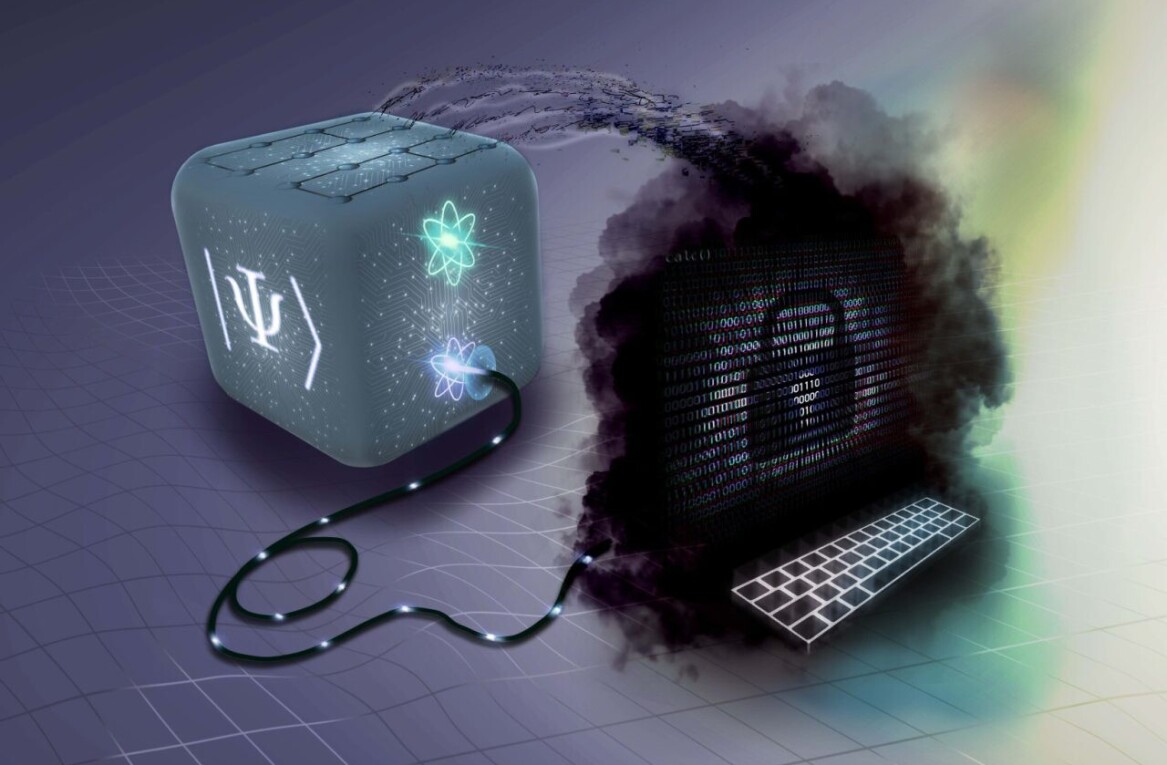UK startup Phasecraft has developed an algorithm that brings the promise of quantum computers’ potential to reveal new materials and their properties much closer to realisation.
Due to their ability to simulate multiple complex quantum systems, quantum computers hold incredible potential in the field of material science. In turn, this could lead to technological leaps in fields such as energy, manufacturing, and medicine.
There is still a long way to go for quantum computers to scale and become stable enough to satisfactorily perform these functions on their own. However, quantum computers and classical computers can work together, using algorithms that use smaller scale quantum computers for specific sub-tasks within a larger computation process.
Today, Bristol- and London-based startup Phasecraft has revealed a new algorithm that combines and optimises classical mapping with quantum simulation — putting material simulations on near-term quantum computers “within touching distance.”
“The improvements we’ve made in circuit depths with our latest algorithms fundamentally shift the landscape and timeline of materials simulation on quantum computers,” said Phasecraft CTO/chief scientist and co-founder Toby Cubitt. (We will never cease to marvel at the appropriateness, or perhaps inevitability, for someone with this last name to work in quantum computing.)
Overcoming near-term quantum computer limitations
The term “near-term quantum computers” refers to the quantum computing systems that are expected to be developed and operational in the relatively short term, considering the current pace of technological advancements in the field. They have a limited number of qubits and have limitations on how many operations they can reliably perform.
Phasecraft says its algorithmic approach overcomes these limitations by bringing together classical methods of mapping materials, with novel quantum techniques for simulating their behaviour. The first stage performs calculations and optimisations on classical computers to produce an effective representation of the material, while the second produces the world’s most efficient quantum circuits to simulate that material’s behaviour.
“What was once deemed beyond reach of near-term quantum computers now looks to be within striking distance. We’ve taken an important step towards the promise of modelling and designing novel materials using quantum computing,” Cubitt continued.
Along with the publication of the latest paper in Nature Communications, Phasecraft also launched a Materials Modeling Quantum Complexity Database, which lists the quantum circuit complexity (a reference for how complex a quantum computation is) for more than 40 materials.

Ashley Montanaro, co-founder and CEO, said the intention behind releasing the database was to bridge the gap between quantum computing theory and practical application. “It’s the culmination of multiple years of research and a testament to the progress we’ve made in bringing materials modelling on quantum computers closer to reality,” he stated.
Innovate UK and the National Quantum Computing Centre (NQCC) have supported Phasecraft’s research with grants. The Scientific Computing Department at the Science and Technology Facilities Council (STFC) has also partnered with the startup on the project. Phasecraft itself was founded in 2019 by Cubitt, Montanaro, and John Morton.
Get the TNW newsletter
Get the most important tech news in your inbox each week.






